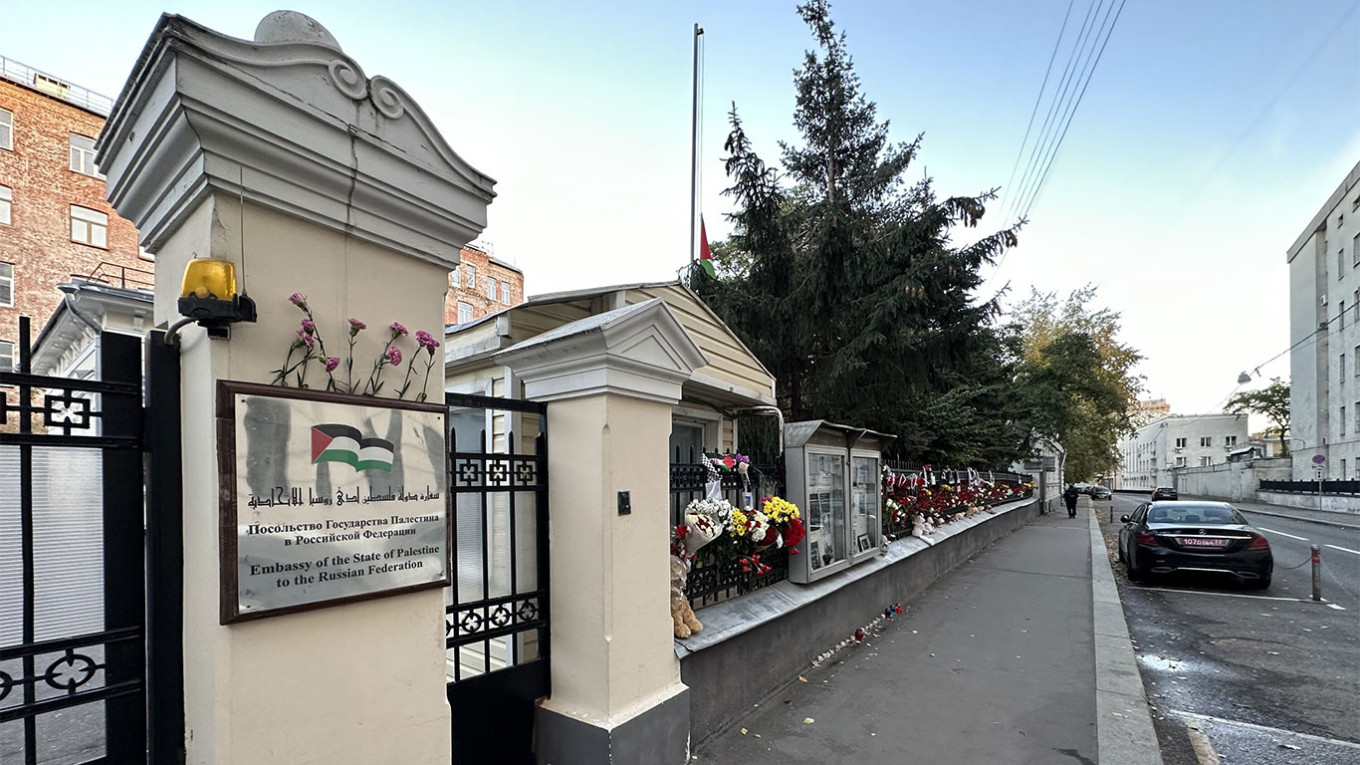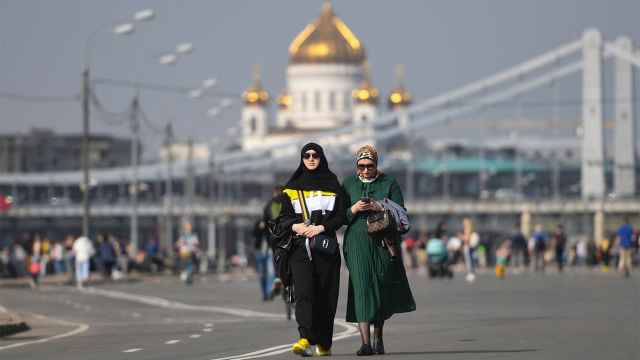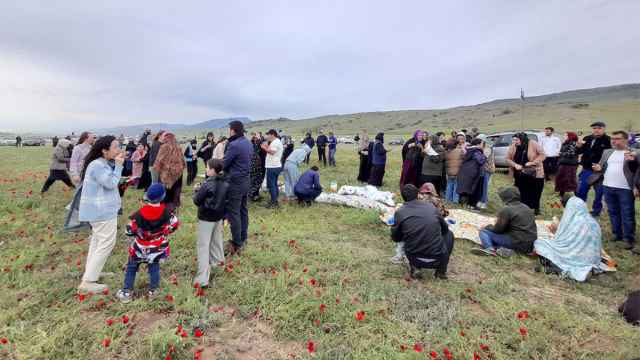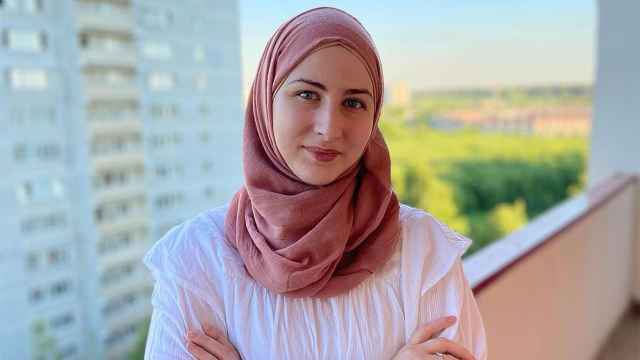When Fatima Abdulkarim arrived in her native republic of Dagestan early on Sunday, she had hoped to take care of business matters, visit family and — not least importantly — obtain a permit to hold a rally in support of Palestine in the region’s capital Makhachkala.
“We applied for a protest permit to ensure that everything would go peacefully and we would be able to express our sympathies and support for the people of Palestine by carrying flags and slogans, but without inciting interethnic hatred,” said Abdulkarim, a Moscow-based human rights lawyer.
The Makhachkala protest would have been Abdulkarim’s second event in support of civilians in the besieged Gaza Strip, having co-organized a solidarity event near the Palestinian Embassy in Moscow earlier this month.
But the peaceful rally she had envisioned was not meant to happen.
On Sunday evening a mob of as many as 1,200 young local men stormed Makhachkala’s airport, seeking to attack Jews and Israelis rumored to have arrived on a flight from Tel Aviv. Elsewhere in the city, crowds gathered for an anti-Israeli rally.
At least 20 people were injured and 60 detained in Sunday’s airport riot, an event that left many in Russia’s large Jewish community afraid for their safety.
“A lot of people here are worried and saddened by what happened,” Abdulkarim told The Moscow Times in a phone interview from Makhachkala.
“Islamophobia exists both in Russia and abroad and this will change attitudes towards us [Muslims],” she said. “All [international] newspapers are already calling us ‘crazy,’ ‘savage,’ ‘mad’ and ‘dangerous’.”
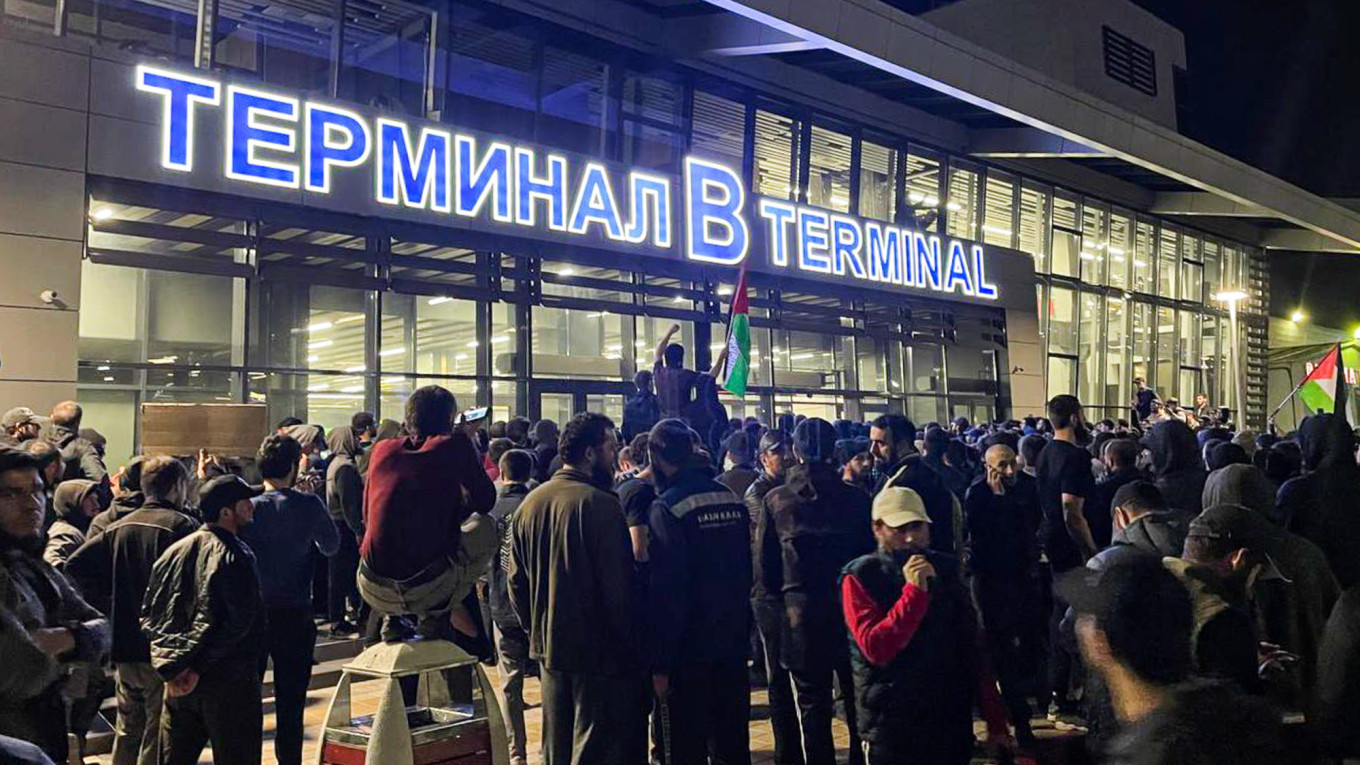
Global anger from the Israel-Hamas conflict has spilled over into Russia, which is home to at least 25 million Muslims, including the many Islam-adherent peoples of the North Caucasus and Volga-Ural regions. In the North Caucasus republics of Ingushetia, Chechnya and Dagestan, more than 90% of the population identify as Muslim.
Russia’s Muslims have emerged as the most prominent pro-Palestinian voice in the country in the weeks since Israel retaliated to a brutal Hamas militant attack with relentless bombardment of Gaza.
In addition to collective prayers for Palestine being held across the country, Russia’s many Islamic charities have been tirelessly collecting aid for Gaza and raising funds to support charities working in the besieged strip.
The total value of donations and money raised for Gaza in Russia could amount to as much as 50 million rubles ($536,481), a source connected to one of these charitable organizations said.
The source, who requested anonymity due to fear of facing repercussions for revealing this information to independent media, said the vast majority of this money hasn’t yet reached the blockaded Palestinian territory.
Though the Kremlin, too, has been seemingly leaning closer to Gaza’s Hamas leadership, the pro-Palestinian sentiment among Russia’s Muslims transcends political allegiances, uniting vocal government critics and supporters and further bridging divides caused by Russia’s invasion of neighboring Ukraine.
“How could one remain indifferent to the murder of children and a genocide?” said a Muslim woman from the republic of Tatarstan, referring to the at least 3,195 confirmed deaths of minors in Gaza, according to Save the Children.
“Palestine is a bleeding wound of every earnest Muslim no matter where they live. Despite thousands of kilometers between us, our prayers are always with this brave, patient and God-fearing nation,” she added, requesting anonymity due to the politically charged nature of the topic.
Shared religious views are not the only reason why so many people in Russia’s Muslim-majority republics — and particularly those in the North Caucasus — support Palestine.
“There is pretty broad support for Palestine due to either solidarity with them as Muslims or because of a shared struggle against oppression. This latter point is obviously more prominent among opposition-minded individuals,” said Harold Chambers, an expert on the North Caucasus and a doctoral candidate at Indiana University.
In the republic of Chechnya — which fought two wars for independence from Russia in the 1990s and early 2000s — pro-Palestinian sentiments tend to be equally strong among both supporters of pro-Kremlin leader Ramzan Kadyrov and the exiled opposition. The latter often compare the Israeli occupation of Palestinian lands to Russia’s perceived occupation of Chechnya.
“Palestine is widely talked about…and the events are felt painfully by people of all ages, both at home and in the diaspora,” said Muslim Ediev, a Chechen historian and supporter of the region's pro-independence resistance movement.
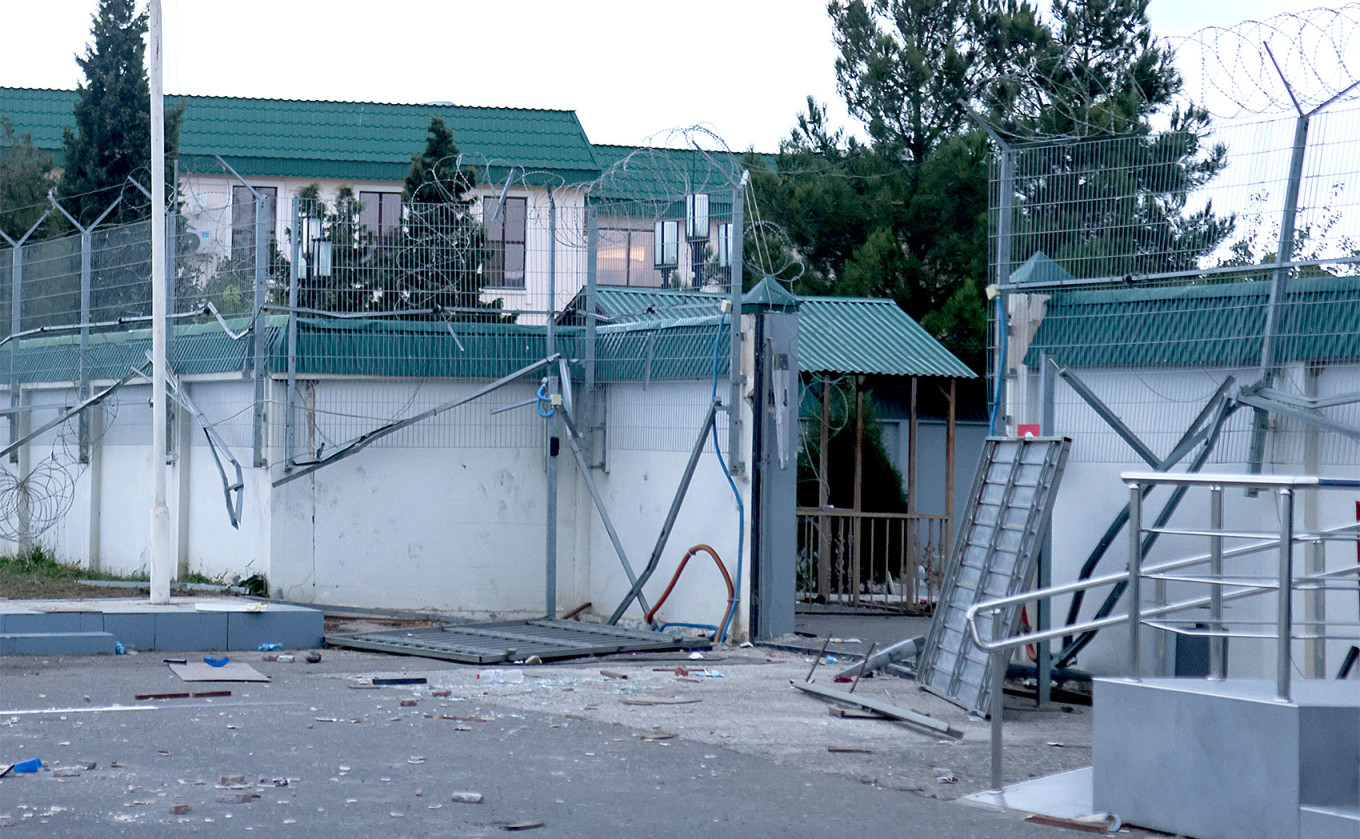
Earlier this month, Kadyrov declared his support for Palestine and offered to send his region’s forces to serve as peacekeepers in the conflict. Similar discussions on whether to send people to the war zone and whether that would be “a good deed” are also taking place among members of the diaspora, according to Ediev.
Chechens both in the republic and abroad were equally dismayed by Sunday’s events in Chechnya's neighbor Dagestan.
“The reaction to what has happened in Dagestan was mostly that of not understanding what ordinary Jews have to do with anything [going on],” Ediev told The Moscow Times.
“I understand why Dagestanis are outraged, but they also need to realize that there are Jews who speak out against this mayhem and violation of the rights of Palestinians,” he added.
But as the Israeli-Hamas standoff enters its fourth week and tensions around the conflict continue to run high, the room for nuanced opinions appears to be shrinking, giving way to greater radicalism.
“I am being attacked from all sides as always,” said human rights lawyer Abdulkarim.
After posting a message of condolence to Israelis on social media after the Oct. 7 Hamas militant attack, Abdulkarim recalls being attacked by “her own,” the Dagestanis, who flooded her account with threats and told her “not to come back.”
“Then I started covering what is going on in Palestine and, of course, all the people with pro-Israeli views started to attack me,” Abdulkarim recalled, noting that her world seemingly “turned upside down” after she saw her former allies who opposed Russia’s war in Ukraine take on a radically pro-Israeli position.
“I had three Jewish women among my clients. Two of them stayed and one terminated her contract with me. We parted on good terms, but I told her, ‘You know, I can’t just stop telling the truth’,” said lawyer Abdulkarim.
As the events in Dagestan have shown, the latest escalation in the decades-long Israel-Palestine conflict has brought to the surface the many frustrations harbored by members of Russia’s Muslim communities.
This now risks exacerbating existing inter-ethnic tensions in Russia, according to Stefania Kulaeva, a human rights defender and expert at the Brussels-based Anti-Discrimination Center (ADC) Memorial.
“Dagestanis were frustrated by injustice, discrimination, poverty and [military] mobilization and they took it out on those who happened to be in the way … I think that religion itself is not the main thing in this matter, but it serves as a means to explain the imaginary solidarity with other Muslims and hatred towards Israelis and also towards all Jews,” Kulaeva told The Moscow Times.
“I think that all phobias are somehow connected. If there will be a trend toward increased hatred, then both Jews and Muslims will suffer.”
A Message from The Moscow Times:
Dear readers,
We are facing unprecedented challenges. Russia's Prosecutor General's Office has designated The Moscow Times as an "undesirable" organization, criminalizing our work and putting our staff at risk of prosecution. This follows our earlier unjust labeling as a "foreign agent."
These actions are direct attempts to silence independent journalism in Russia. The authorities claim our work "discredits the decisions of the Russian leadership." We see things differently: we strive to provide accurate, unbiased reporting on Russia.
We, the journalists of The Moscow Times, refuse to be silenced. But to continue our work, we need your help.
Your support, no matter how small, makes a world of difference. If you can, please support us monthly starting from just $2. It's quick to set up, and every contribution makes a significant impact.
By supporting The Moscow Times, you're defending open, independent journalism in the face of repression. Thank you for standing with us.
Remind me later.



